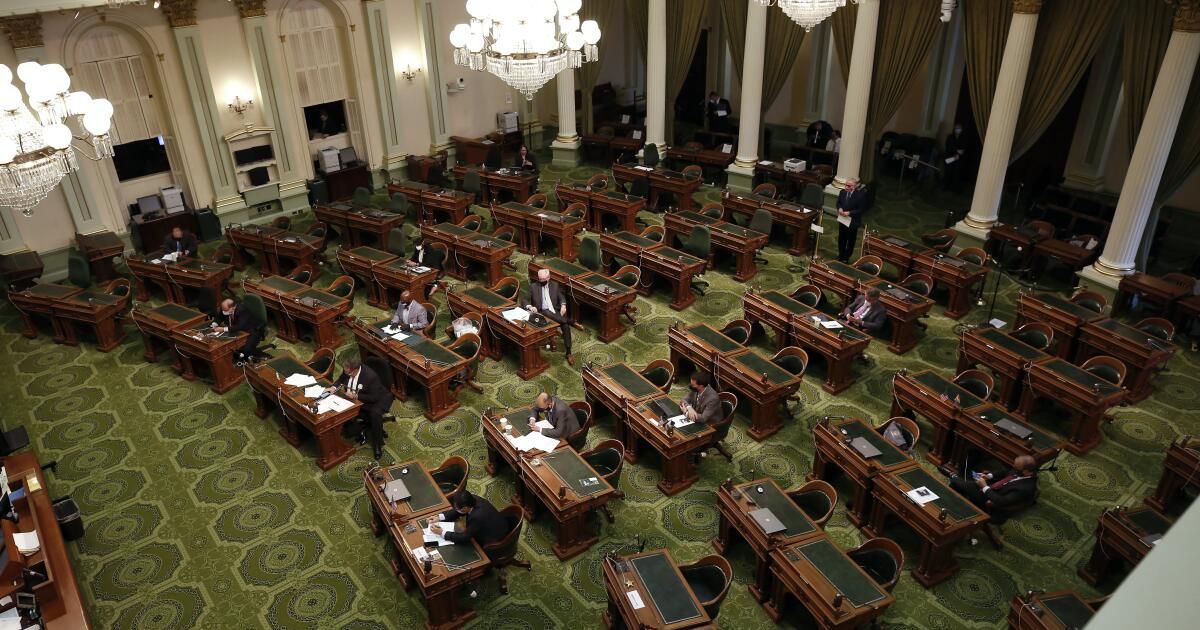California lawmakers continue to try to evade the public.
Since the end of the COVID emergency, they have introduced bill after bill to eliminate important state open meeting laws so that they and their local government counterparts can engage in public policy debates from the privacy of their own tables. dining room, seats or, for all we know, beach blankets.
Already, any member of any government body in California can attend a meeting by phone as long as they comply with basic transparency measures, such as posting an agenda in a remote location and allowing the public to be present at their side. Under Assembly Bill 2449, which expires after next year, they can even hide their location, as long as there is an emergency or “just cause” as defined in the statute; for example, illness or childcare responsibilities.
Legislators want to go further and be able to “attend” video meetings from secret locations without indicating any reason.
When their bills fail due to public objections, they simply return them the following year.
That's what happened with Assembly Bill 817, which would eliminate the requirement that members of a government body participating in meetings by teleconference at least notify the public of their location and make it accessible.
The bill would apply only to “subsidiary” bodies without final decision-making powers, but that doesn't mean just informal advisory groups. This would include, for example, City Council commissions. Meetings like this are where the important details of new laws are worked out and where public input has the greatest impact.
The bill passed the Assembly last year but died in the Senate. He is now back and faces a key Senate hearing on Wednesday.
Let's hope the committee kills the bill once and for all.
The Legislature has already found enough loopholes in local government meeting requirements. The goal of the Ralph M. Brown Open Meetings Act is to allow the public and media to be physically present in the same room as the people who are supposedly making decisions on behalf of the public. This allows the public to watch them deliberate, observe who speaks to them between votes, and address them directly from the public microphone. Journalists and constituents can call lawmakers during recesses to ask questions.
Watching them on television or on a laptop is not the same. It is not the same to comment on your proposals over the phone or over Zoom.
Certainly, government agencies should use such technologies to allow more of the public to participate if they cannot attend meetings in person, but the opposite is not true. Remote participation should not be the only form of public attendance. Remote participation should not be the norm for civil servants either. Remote access is a convenience for the public, not for officials who would prefer to avoid scrutiny.
Supporters of the bill say it is a necessary path to allowing more people to serve as elected or appointed officials. Conflicting commitments such as childcare or physical challenges can make meeting attendance unreasonably difficult.
But they can already do so under the “just cause” exceptions of AB 2449 and can discuss the possibility of making those changes permanent next year when it is under review. AB 817 would bypass that review and permanently eliminate the need for just cause.
Six bills were just passed in the Assembly, along with AB 817, to further eliminate public rights and official responsibilities in public meetings, depending on factors such as the topic being discussed (cybersecurity threats, for example). or the particular organism. that is, come together (the Tri-Dam Project or the Southern California Clean Energy Alliance).
It's the government's version of long COVID: a lingering nostalgia among public officials for emergency lockdown provisions four years ago that suspended open meeting requirements and allowed them to escape the direct scrutiny of their constituents.
But the emergency has passed, and so has the need to continue making exceptions to the public's right to be present at government meetings. AB 817 is not a step forward for the public.












